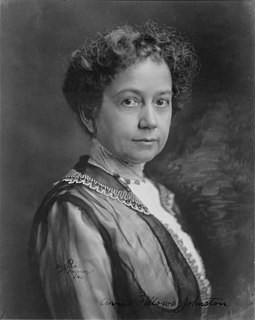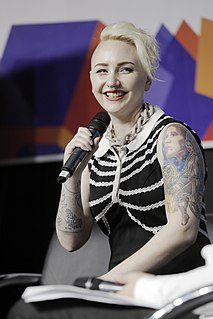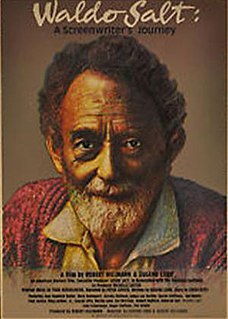A Quote by Thomas Chatterton Williams
There were books all over the house, and I was always told that I could write and that it was something good to do. So when I finally did it, it wasn't so strange or bizarre.
Related Quotes
Growing up, I didn't have any comic books, at all. But my friend had a trunk full of them, so comic books were like candy for me. I would go over to his house for a sleep-over, and I would just be devouring everything I could get my hands on. I knew the sleep-over was going to be over, and I was going to go back to my house and it was going to be Kipling.
The little dog-eared books in the meeting-house proved poor reading ... So many of them were about unnaturally good children who never did wrong, and unnaturally bad children who never did right. At the end there was always the word MORAL, in big capital letters, as if the readers were supposed to be too blind to find it for themselves, and it had to be put directly across the path for them to stumble over.
When I had finished the book I knew that no matter what Scott did, nor how he behaved, I must know it was like a sickness and be of any help I could to him and try to be a good friend. He had many good, good friends, more than anyone I knew. But I enlisted as one more, whether I could be of any use to him or not. If he could write a book as fine as The Great Gatsby I was sure that he could write an even better one. I did not know Zelda yet, and so I did not know the terrible odds that were against him. But we were to find them out soon enough.
I was a big fan of a writer named Jack Vance, a science fiction writer. He always wrote about these guys who were either going down a river in a strange world or would be in this one land where people acted really strange, and he'd have these interactions with them that were strange - he'd usually get run out of town or something. Then he'd end up in the next town over where the rules were totally different. And I love this stuff.
The first real unhappiness I remember to have felt was when some one told me, one day, that I did not love God. I insisted, almost tearfully, that I did; but I was told that if I did truly love Him I should always be good. I knew I was not that, and the feeling of sudden orphanage came over me like a bewildering cloud.
The books in Mo and Meggie's house were stacked under tables, on chairs, in the corners of the rooms. There where books in the kitchen and books in the lavatory. Books on the TV set and in the closet, small piles of books, tall piles of books, books thick and thin, books old and new. They welcomed Meggie down to breakfast with invitingly opened pages; they kept boredom at bay when the weather was bad. And sometimes you fall over them.
I told my father I wanted to go to the stock market. My father reacted by telling me not to ask him or any of his friends for money. He, however, told me that I could live in the house in Mumbai and that if I did not do well in the market I could always earn my livelihood as chartered accountant. This sense of security really drove me in life.
When the oldest Chatwin, melancholy Martin, opens the cabinet of the grandfather clock that stands in a dark, narrow back hallway in his aunt’s house and slip through into Fillory...it’s like he’s opening the covers of a book, but a book that did what books always promised to do and never ac tually quite did: get you out, really out, of where you were and into something better.



































